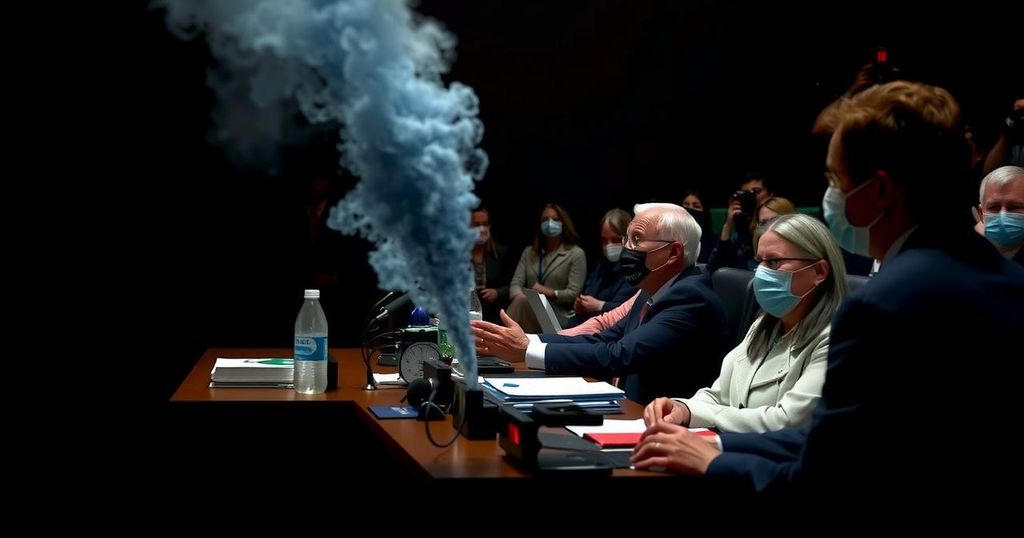Divided Leaders at COP29 Highlight Urgency of Climate Action Amid Rising Emissions
At COP29 in Azerbaijan, global leaders presented differing views on combating climate change, while a report indicated that to meet the Paris Agreement’s goal of limiting global warming, net-zero emissions must be achieved by the late 2030s. The draft financing agreement unveiled demands significant support from developed nations, yet faces opposition and highlights disparities in climate funding priorities. Urgent action is crucial, especially for nations profoundly impacted by climate disasters.
Global leaders gathered at COP29 in Azerbaijan presented contrasting strategies to confront climate change while a new report underscored the urgent need for accelerated action on carbon neutrality. Data from the Global Carbon Project indicated that CO2 emissions from fossil fuels reached unprecedented levels this year. To comply with the Paris Agreement’s target of limiting global warming to 1.5 degrees Celsius, the world must achieve net-zero emissions by the late 2030s, as opposed to the previously established deadline of 2050. Yalchin Rafiyev, Azerbaijan’s chief negotiator, emphasized the shrinking time frame for action, stating, “The time window is narrowing, shrinking — and we need to act urgently.” In contrast, some leaders defended fossil fuel usage, asserting the necessity of safeguarding their economies. Italian Prime Minister Giorgia Meloni highlighted the need for a balanced approach that fosters sustainability without hastily abandoning fossil fuels. Meanwhile, leaders from regions most affected by climate change expressed urgency, with Tuvalu’s Prime Minister advocating for immediate fossil fuel phase-outs. Negotiators also introduced a draft financing agreement that aims to enhance economic support for developing nations amid calls for a minimum contribution of $1.3 trillion annually from wealthier countries. However, there remains reluctance from developed nations to commit large sums, with many preferring to rely on private sector investments, a stance criticized by organizations like Mercy Corps. John Podesta, the U.S. climate envoy, suggested potential contributions from other countries such as China, highlighting the broader scope of responsibilities in the push for effective climate finance. Philip Davis, Prime Minister of the Bahamas, poignantly remarked on the disparity of funding priorities, questioning why resources mobilized for wars and pandemics do not similarly extend to combating existential climate threats.
The COP29 climate talks are taking place against a backdrop of rising global carbon emissions and increasing urgency to address climate change effectively. The latest findings from the Global Carbon Project reveal that emissions from fossil fuels have reached all-time highs, exacerbating the risks associated with global warming. The discussions at COP29 are essential for establishing stronger commitments from wealthier nations to support developing countries in their transition to renewable energy and adaptation to climate-related impacts. Key themes at the talks include the need for immediate emission reductions, the urgency of climate financing, and the contrasting perspectives of developed versus developing nations regarding climate action.
The proceedings at COP29 highlighted a critical division among global leaders regarding strategies to combat climate change. While some advocate for urgent measures to phase out fossil fuels, others prioritize economic stability over rapid decarbonization. The draft financing proposals underscored the growing need for substantial financial commitments from developed countries to assist those most affected by climate change. As the deadline for achieving net-zero emissions approaches, coordinated global action and equitable support for vulnerable nations will be paramount to addressing this existential crisis effectively.
Original Source: www.rfi.fr




Post Comment